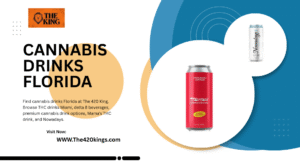
Digital education tools have transformed how students complete academic tasks. One growing trend is the option to buy assignment online through various web platforms. While this may seem convenient, many users overlook the hidden privacy risks involved. These platforms collect and store sensitive user data, sometimes with little to no regulation or security guarantees.
Understanding the user privacy landscape in the academic outsourcing space is important, especially as demand for writing services grows globally. This article explores key privacy risks and how users can protect themselves while navigating assignment buying portals.
How Assignment Buying Portals Collect User Data
Assignment portals often collect more data than users realize. Beyond basic contact details, many services ask for:
- Academic level and institution
- Assignment details, including topics and deadlines
- Payment information
- Uploaded files or coursework
- Login credentials for learning platforms (in some cases)
This data is stored on external servers, and in many cases, third-party services are involved in processing payments or hosting user data. If the platform does not follow strong data protection protocols, user information can easily become vulnerable.
Why Buying Assignments Comes with Data Vulnerability
The platforms used to buy assignments online may not operate under strict regulatory oversight. Some are international services hosted in countries without strong privacy laws. These platforms can mishandle data or be poorly encrypted, which increases the chances of:
- Data leaks
- Identity theft
- Unauthorized sharing of assignment content
- Academic profile exposure
Moreover, the academic nature of the data makes it even more sensitive. A breach could lead to disciplinary action if institutions find out students used unauthorized assistance.
How Privacy Policies Fail to Protect Users
Many assignment portals display privacy policies that appear detailed. However, most of them use vague terms like “we may share data with trusted partners” or “we use industry-standard protection.” These terms can be misleading and offer little clarity about:
- Who accesses your data
- How long data is stored
- Whether data is sold to marketing firms or academic databases
- If user history can be retrieved by third-party investigators
In many cases, the privacy policies are not compliant with GDPR (for European users) or other regional regulations. This leaves users exposed, especially when using offshore services that operate under minimal legal scrutiny.
Risks of Using Personal Emails and Devices
Students often use their university emails to register on assignment portals. This action creates a direct link between academic identity and the purchase history. Some institutions monitor their email domains and may track suspicious external logins or spam from essay writing services.
In addition, using personal or shared devices to access portals increases the risk of cookie tracking, malware installation, or phishing attempts. Some portals may even track keystrokes or device information, further invading user privacy.
Unregulated Freelancers and Data Access
Another major privacy risk comes from the freelancers hired by the portals. These writers are usually outsourced and not directly employed by the service. There’s no guarantee that these freelancers will delete shared assignment files or not reuse them later.
In some cases, users unknowingly grant direct access to their online learning platforms or documents stored in cloud services. This gives unknown writers control over files, which can be dangerous if misused.
Legal Grey Zones Around User Privacy
When students buy assignment online, they enter a legal grey area. Most countries do not clearly regulate academic ghostwriting. This makes it hard to hold platforms accountable when privacy breaches occur.
Some jurisdictions, like the EU, have data protection laws (GDPR), but enforcing them across borders is complex. Meanwhile, countries without strong digital privacy laws make it easier for such portals to operate without user consent transparency.
Data Sales and Third-Party Involvement
A less visible risk is the resale of user data. Assignment platforms might sell bulk user information to:
- Ad networks
- Research firms
- Competitor websites
- Online academic tools and plugins
Once this data is sold, users lose all control over its use. They may start receiving unsolicited emails or ads, or even face blackmail attempts in extreme scenarios. This exploitation is rarely discussed openly but is a growing threat as digital student markets expand.
Payment Systems and Financial Data Safety
Most platforms require users to pay upfront using credit cards, PayPal, or crypto. If the payment system is not encrypted or uses unverified third-party gateways, users may become victims of fraud or identity theft.
In some cases, saved payment details can be misused. Users have reported unauthorized recurring charges or duplicate transactions from unreliable portals.
How to Check if a Portal Protects User Privacy
Before choosing a platform to buy assignment online, users should conduct a privacy check. Key signs of a secure platform include:
- Clear, easy-to-understand privacy policies
- HTTPS encryption across all pages
- Verified payment gateways (Stripe, PayPal)
- No requirement for school login credentials
- Option to delete user account permanently
In addition, checking reviews on tech forums or privacy watchdog sites can help evaluate the platform’s history with data leaks or misuse.
Best Practices to Reduce Privacy Risks
Students can take steps to protect themselves when interacting with assignment portals:
- Use a separate email address that does not contain personal or institutional details
- Avoid sharing login details of school platforms or personal drives
- Delete uploaded files from the platform after the order is complete
- Use VPN services to mask IP addresses
- Choose platforms with verified security audits or positive data protection reviews
Using encrypted file-sharing methods (like password-protected ZIPs) can also minimize file misuse.
How Academic Institutions Are Responding
Some institutions have started using plagiarism detection tools that also track metadata and submission patterns. If the same assignment is sold to multiple users or submitted from flagged platforms, students may be caught—even if the content is original.
There is also a growing movement to ban or limit access to common assignment buying domains on university networks. This reflects an effort to control student interactions with potentially unsafe portals.
Future of Privacy in Digital Academic Services
With AI and machine learning integrated into many portals, the data collected will only increase. User writing patterns, browsing habits, and device data may soon be used to train bots or auto-generate content.
This raises ethical and legal concerns, especially if users are not informed that their data is being used in this way. Students must be aware of the evolving landscape and advocate for better transparency and accountability in the platforms they use.
Final Thoughts on Staying Secure While Using Academic Services
Using platforms to buy assignments online carries significant user privacy risks. These range from data leaks and unauthorized file use to identity theft and academic exposure. As more students rely on digital tools, understanding and managing these risks becomes essential.
The key is to stay informed, use platforms with strong privacy practices, and limit the amount of personal data shared. Safe academic outsourcing is possible, but only if users prioritize their privacy at every step.







